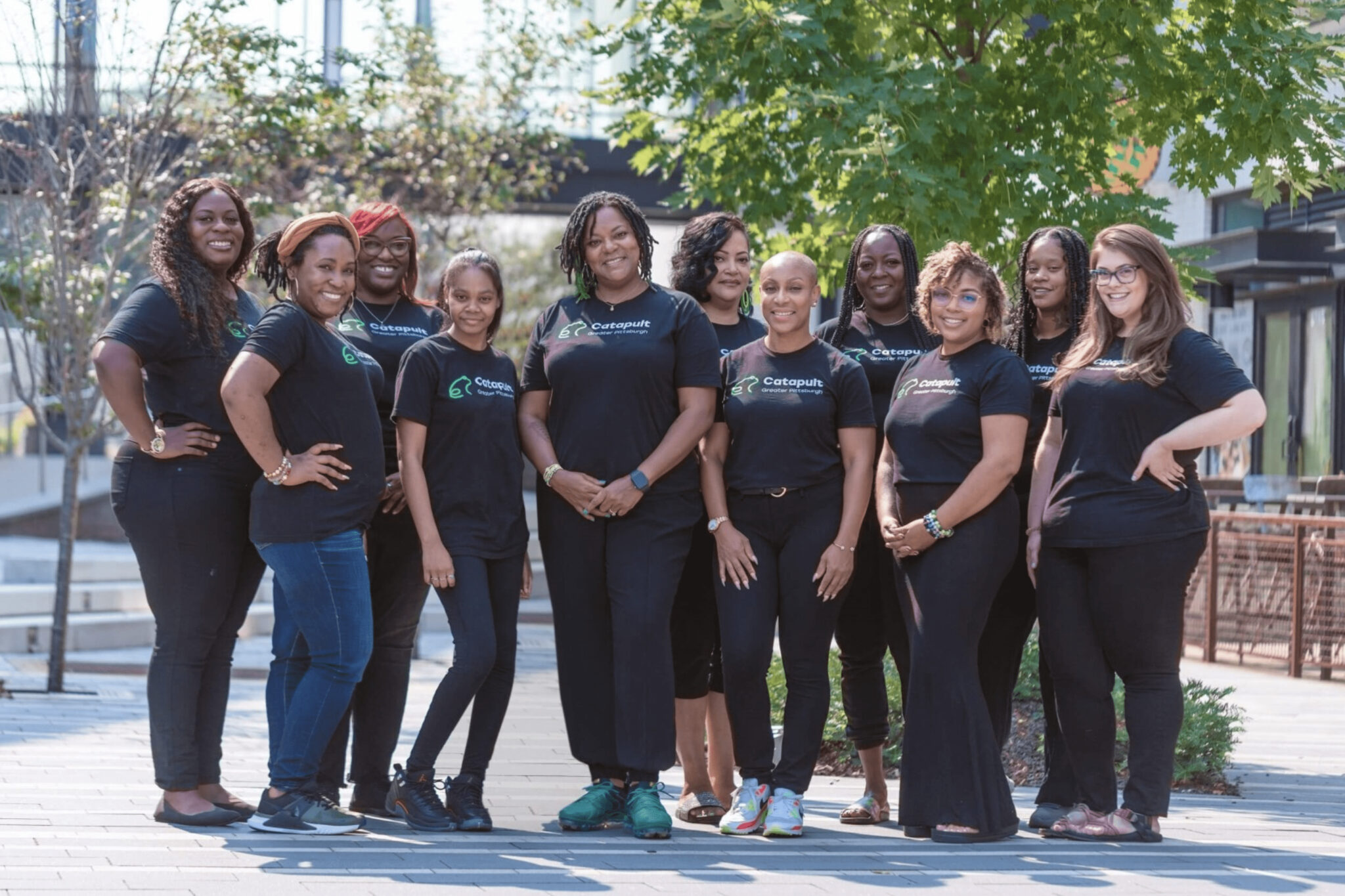
Black women lead Pittsburgh’s microbusiness revival
Opinion
Black women lead Pittsburgh’s microbusiness revival

Originally published January 25, 2024 in the Pittsburgh Post-Gazette and authored by Tammy Thomson, founding executive director of Catapult Greater Pittsburgh and Alexandra Rosen, senior director of GoDaddy Venture Forward.
Pittsburgh stands out as one of the fastest-growing areas for America’s smallest businesses, called microbusinesses. Microbusinesses are defined as those with a unique web domain, an active website, and most often fewer than 10 employees.
This kind of entrepreneurship has flourished since the onset of the pandemic in March 2020. In fact, 39% of microbusinesses started since 2020. And in Pittsburgh, Black women lead the charge.
Microbusiness in Pittsburgh
High unemployment and government-funded stimulus checks forced or motivated people to start businesses. The pandemic also provided people time to question what they wanted to do and challenged many to find new ways to make ends meet. This was especially true for women, particularly mothers who lacked childcare options.
Research from Venture Forward offers a deeper view into Pittsburgh’s microbusinesses. There are currently more than 167,000 such businesses in Allegheny County, a number that has nearly tripled since September 2019.
About 144,000 of those call the city of Pittsburgh home. Excluding the owner, each microbusiness creates about seven jobs at the county-level. Job creation stems from direct and indirect hiring and more money in the community.
Additionally, the research found that:
- More than two-thirds of microbusinesses contribute at least 25% of the owner’s total household income.
- 59% of microbusinesses in Pittsburgh needed under $5,000 to get started. Raising that small amount of capital wasn’t easy. In fact, 24% of microbusiness owners who needed less than $1,000 found it difficult to raise the funds.
- 75% of microbusiness entrepreneurs in Pittsburgh didn’t know about any business assistance programs. Only 14% of owners believe local policies effectively support their business.
- About 80% of Pittsburgh microbusiness owners left a job to become an entrepreneur or started their business as a side-hustle.
Ways to help entrepreneurs
According to the research, focusing on a few areas helps the new class of entrepreneurs succeed. Areas to focus include: better access to funding, affordable and reliable broadband, and digital skills training such as website creation.
Pittsburgh’s microbusinesses thrive thanks to groups like Catapult Greater Pittsburgh, which one of us directs. The organization was formed to create intentional opportunities for wealth building.
For example, Aquene Watkins-Wise knew her business, Royally Fit, needed to expand into a physical location. But she didn’t know where to start. She turned to Catapult. She graduated from our Startup to Storefront program and then participated in a retail incubator program. She is now working with Catapult seeking a permanent brick and mortar space to grow her retail business.
Venture Forward’s research found the number of Black women entrepreneurs in Allegheny County almost doubled since 2020. Black women entrepreneurs were the only group that grew during that timeframe. This data aligns with national trends and Catapult Greater Pittsburgh’s insights.
Roughly 95% of Catapult Greater Pittsburgh participants are Black women, and 90% are Black, single moms. Most started their business out of necessity to supplement their total household income. Digital entrepreneurship helps close equity gaps and creates accessible opportunities for all.
Where do these women conduct their business? 47% of women entrepreneurs in Pittsburgh are online-only. In 2020, many Catapult Greater Pittsburgh women participants didn’t have a website. The lockdown pushed them into building one. The result — a successful and growing group of Black women elevating the Pittsburgh economy.
Digital presence
A digital presence continues to be a key asset for modern business owners to expand their customer base. Venture Forward research finds 25% of microbusiness entrepreneurs use their website for sales and 19% for bookings.
That number is more than 50% higher for Black entrepreneurs and about 20% higher for women-owned businesses. Black-owned and women-owned businesses are also more likely to have nationwide customers.
Microbusinesses contribute to the broader economy in many ways. When we shift what defines an entrepreneur and what size of businesses drive impact, we shift the whole economy.
More Profiles & Use Cases

How the pandemic has changed Detroit’s view of microbusinesses
Detroit’s economy was showing signs of growth before the pandemic slowed everything down. That forced people like Pierre Batton, Executive Vice President of Small Business Services at the Detroit Economic Growth Corporation1, to quickly come up with new ideas...
Read the article entitled “How the pandemic has changed Detroit’s view of microbusinesses”
Boston Globe: The .boston Effect
With more than 2.8 million online microbusinesses launching just last year in the U.S., now is the time to consider policies to target the entrepreneurs’ specific needs.
Read the article entitled “Boston Globe: The .boston Effect”
GoDaddy on the Hill: This is how we can support microbusinesses in America
Recently, GoDaddy was on The Hill to talk to Steve Clemens about microbusinesses (aka ventures) and their impact on the U.S. economy
Read the article entitled “GoDaddy on the Hill: This is how we can support microbusinesses in America”